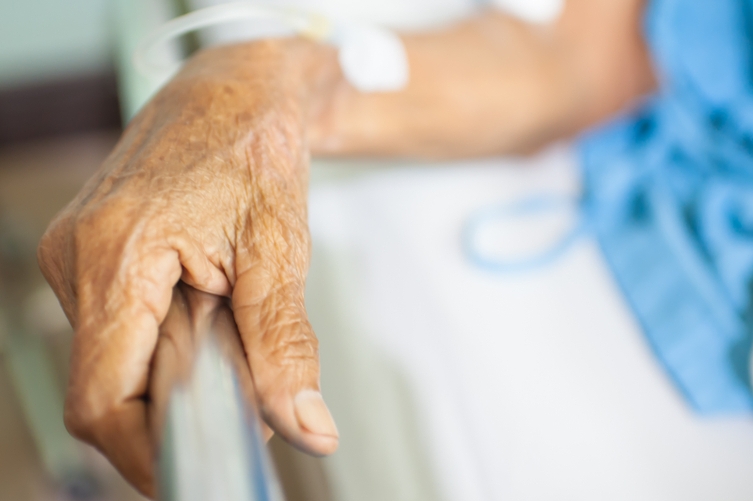
Malnutrition Injury Attorneys in Highland Park, NJ, Fight Tirelessly for Nursing Home Residents in Mercer County, Middlesex County, Somerset County, and Throughout New Jersey
If your loved one in a nursing home isn’t properly fed or hydrated, it could be an indication of neglect. The New Jersey dehydration injury lawyers at the Law Offices of Harold J. Gerr take matters of malnutrition in nursing homes seriously because we know how significant the consequences can be.
You shouldn’t have to worry that the facility you’ve entrusted with the care of your family member is putting their health at risk by failing to keep them fed and hydrated. If you have reason to suspect malnutrition or dehydration in a nursing home, you need to act fast to protect your loved one from further harm. Contact us today for help moving forward with an investigation and nursing home abuse claim.
Seek Justice for Your Injury. Contact The Law Offices of Harold J. Gerr for Experienced Representation Today.
Malnutrition and Dehydration in Nursing Homes in New Jersey
In nursing homes all over NJ, malnutrition and dehydration are serious problems. The elderly have a higher risk of dehydration and malnutrition than the general population as it is, and those in nursing homes have a greater chance of being dehydrated than those living in the community, Reuters reported.
Under New Jersey law, nursing home residents and their families can hold nursing homes legally and financially accountable for the harm caused by abuse or neglect, which may include malnutrition and dehydration. Our malnutrition injury attorneys in Highland Park, NJ, can investigate potential neglect for your family at no upfront cost.
Areas Our New Jersey Dehydration Injury Lawyers Serve
At the Law Offices of Harold J. Gerr, our nursing home neglect attorneys assist families all over New Jersey. The areas we serve include:
- Mercer County, home to 16 nursing homes, six of which have one-star or two-star ratings under the Federal Five-Star Quality Rating System, according to current data from the New Jersey Department of Health
- Middlesex County, home to 27 nursing homes, 11 of which have one-star or two-star ratings
- Somerset County, home to 15 nursing homes, six of which have one-star or two-star ratings
- Hunterdon County, home to four nursing homes, two of which have one-star or two-star ratings
- Union County, home to 23 nursing homes, seven of which have one-star or two-star ratings
- Essex County, home to 32 nursing homes, 12 of which have one-star or two-star ratings
- Hudson County, home to 15 nursing homes, three of which have one-star or two-star ratings
- Morris County, home to 22 nursing homes, five of which have one-star or two-star ratings
- Monmouth County, home to 33 nursing homes, seven of which have one-star or two-star ratings
- Ocean County, home to 32 nursing homes, seven of which have one-star or two-star ratings
- Burlington County, home to 18 nursing homes, six of which have one-star or two-star ratings
Let our malnutrition injury attorneys in Highland Park, NJ, advocate for your loved one and investigate suspected dehydration and neglect in New Jersey nursing homes.
- ★★★★★
"Excellent law firm. Mr. Gerr is extremely knowledgeable and personable. He has a genuine interest in his clients. His staff is great also."
T.D. View All Client Reviews
Malnutrition and Dehydration as Neglect in Nursing Homes
Neglect, or the failure to provide adequate care, takes many forms in nursing homes. Nursing home neglect can encompass malnutrition, or a lack of sufficient nutrients in the body, and dehydration, or inadequate intake of fluid.
Examples of ways that nursing home neglect can lead to malnutrition or dehydration include the following:
- Failing to serve residents reasonably appetizing food at the proper temperature to eat
- Failing to serve residents food that accommodates their dietary restrictions (such as food allergies and medical conditions such as diabetes)
- Failing to serve residents food that provides their required nutrients
- Failing to assist residents who aren’t able to feed themselves due to their medical conditions
- Failing to provide additional nutrition to patients who require it for medical reasons, such as the healing of severe wounds
- Failing to provide a sanitary dining environment
- Putting a patient on a pureed or soft diet against their wishes and without medical necessity, resulting in poor nutrition intake
- Contributing to social isolation, such as forcing residents to eat alone or in social situations that make them uncomfortable
- Failing to monitor food and fluid consumption, especially in residents with dementia or eating disorders that may cause them to not eat
- Failing to address health conditions, such as pain or dental issues, that interfere with eating and drinking
- Intentionally withholding food or fluids as a punishment or to prevent bathroom-related accidents
Other forms of neglect can also contribute to dehydration and malnutrition. For example, if a nursing home resident requires mobility assistance to get to the bathroom and knows they can’t count on personnel to help them promptly, they may restrict their own fluid intake to avoid having to go to the bathroom. Residents who don’t get the hygiene assistance they need might be too embarrassed of their appearance to join other residents in the dining room, resulting in skipping meals.
Some medical conditions make it difficult to prevent dehydration and malnutrition, especially in the final stages of terminal diseases. In such instances in which even aggressive interventions may not be sufficient to prevent malnutrition and dehydration, neglect may not be a factor.
However, many cases of dehydration and malnutrition in patients who are not in the end-stage of disease are avoidable through proper attention, screening, and planning on the part of nursing home staff. Nursing home personnel are responsible for the well-being of their residents. That includes a duty to take appropriate steps to prevent avoidable malnutrition and dehydration.
- $1 MPedestrian Accident
- $845 KCommercial Truck Accident
- $275 KSlip and Fall Accident
The Consequences of Malnutrition and Dehydration in Nursing Home Residents
Dehydration and malnutrition are serious matters, especially in nursing homes, where the population often encompasses the elderly and people with other health concerns. The complications caused by malnutrition or dehydration could be matters of life and death, especially for nursing home patients whose health is already compromised.
Researchers have linked malnutrition among the elderly to reductions in physical and cognitive function, progressive declines in health, and increases in deaths compared to populations that are sufficiently nourished.
Dehydration is associated with consequences such as memory impairment, kidney infections, increased fall risk, increased risk of developing bed sores, and a greater likelihood of requiring a hospital stay and dying.
How Our New Jersey Dehydration Injury Lawyers Can Help
If you notice symptoms in your loved one like unexplainable weight loss, confusion, lightheadedness, vomiting, and changes to the skin, mouth, or eyes, it’s worth speaking to our
New Jersey dehydration injury lawyers about the potential that neglect is a factor. Our nursing home malnutrition lawyer can assess the likelihood of dehydration, improper nutrition, and neglect and investigate the care your loved one is receiving in the facility.
If our investigation reveals neglect, we can assist your family in filing a nursing home dehydration lawsuit to hold the facility and its personnel accountable for the harm they have caused. Through this legal action, we will seek compensation on your family’s behalf. Our attorneys handle every aspect of a nursing home neglect claim for our clients.
Even if an investigation doesn’t uncover any evidence of neglect or abuse, our attorneys can serve as a resource regarding your family’s legal rights and options, such as what you need to know about moving a loved one out of a nursing home in which you’re not satisfied with the care they’re receiving. The consultation is completely free, so you have nothing to lose by consulting our knowledgeable attorneys.
Get the Compensation You Deserve. Let The Law Offices of Harold J. Gerr Fight for Your Rights. Call Us Today at 732-537-8570 or Fill Out Our Convenient Online Contact Form For a Free Consultation.
Contact Our New Jersey Dehydration Injury Lawyers at the Law Offices of Harold J. Gerr Today for a Free Case Review
Don’t take lightly concerns over malnutrition and dehydration in a nursing home. If some form of neglect is occurring, it could precipitate the decline of your loved one’s health. Consulting New Jersey dehydration injury lawyers isn’t an overreaction. It’s exactly the kind of intervention your family member needs to protect them from serious harm.
For help from a nursing home malnutrition and dehydration lawyer in Highland Park, NJ, contact the Law Offices of Harold J. Gerr online or call 732-537-8570 today.









